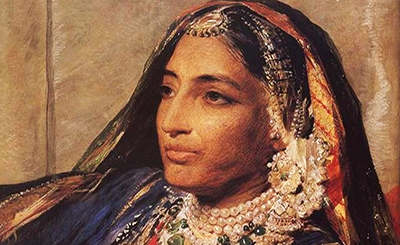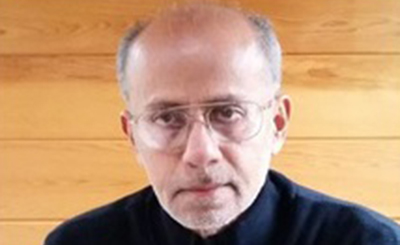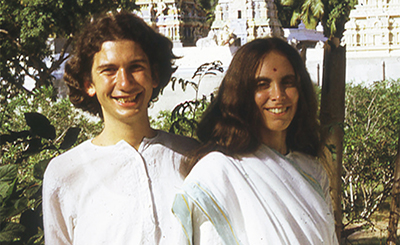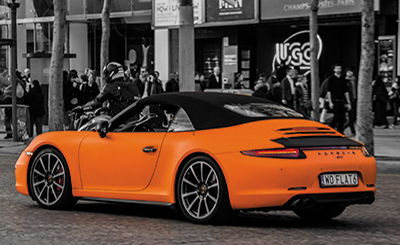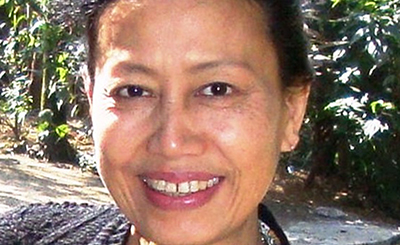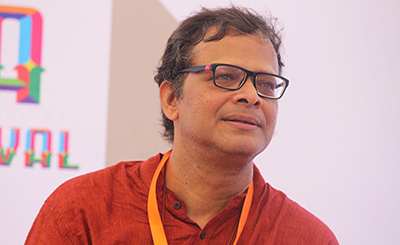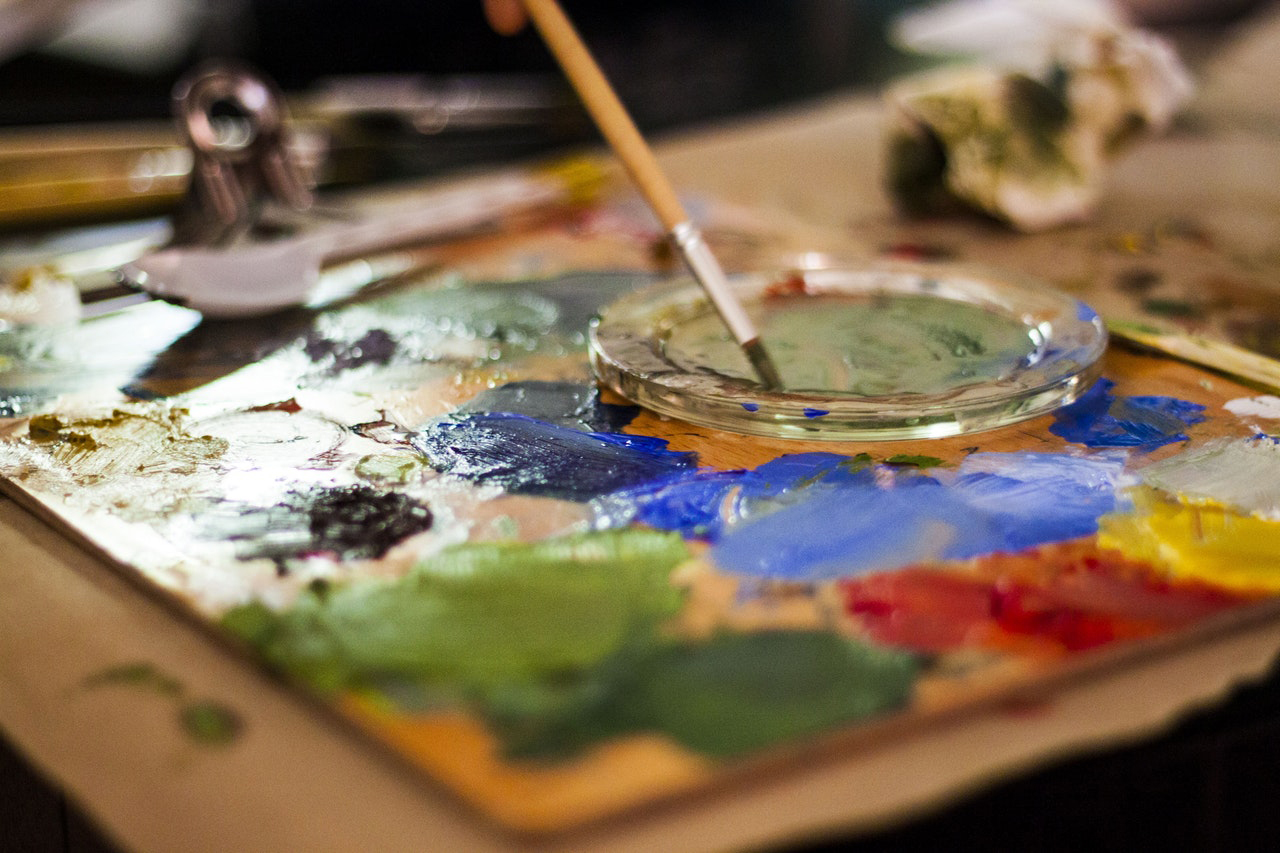
Photo: Yigithan Bal
from The Painter of Bridges
Context
Sarajevo, April 1992. Zora is a landscape painter whose husband, Franjo, is visiting their daughter, Dubravka, in England when violence breaks out. No one believes the fighting will last longer than a week or two. In any case, Zora has grown obsessed with a painting of a bridge that she’s working on and does not want to leave Sarajevo.She lives on the eighth floor of a high-rise apartment block in the new part of Sarajevo…
Chapter 3
A rush of friends, and food, around the middle of April. The clinking of cutlery, steam rising up, hands reaching across to pass the bread and the salt. Zora, having not eaten a proper meal since the start of the fighting, is quite overwhelmed. Dish after dish is brought out. A tray of grilled chicken wings; roasted potatoes fragrant with rosemary; marrow and onions stuffed with spiced minced meat. Homemade pita – soft, flaky filo pastry filled with spinach and cheese – lets out warm, yeasty sighs when cut into.
Lenka ran up to Zora’s flat that morning, and, eyes shining, an entirely different girl from the one crying in the lift of a week before, was hardly able to get her words out, as she hopped from foot to foot. ‘Will you come, Zora? Will you come?’ It was her father’s birthday and her mother, elated by a phone call from her son after an excruciating week of silence, and fed up with eating next to nothing, had thought, ‘What the hell?’ and decided to cook up a feast. Only now there was way too much food. ‘Will you come and join us? She’s told me to invite Mirsad from next door, too!’
So now here they all are in the dining room of the Markovićes’ seventh-floor flat: Lenka, her parents – Vesna and Drago, Mirsad and herself.
‘Here you go,’ Mirsad says, sliding some pita onto her plate – and still the dishes keep coming, carried from the kitchen in Vesna’s plump hands, cigarette always on the go, until the embroidered cloth on the mahogany table no longer shows through underneath.
Drago applauds as Vesna, at last, sits down. Everything is dappled with multicoloured light from the stained-glass Art Nouveau lamp that hangs overhead. A banquet of red, blue and green.
‘Eat! Eat!’ Drago cries.
Zora and Mirsad exchange the smallest of glances. Where is all this food coming from? With prices going up in the markets daily, how can they afford it? But Zora pushes such thoughts from her mind and eats, as does Mirsad – all quiet now except for the sounds of chewing and the scrape of knives and forks on china. She didn’t realize how hungry she was, has not really paid attention to food since Franjo and her mother left. And glancing up, Zora sees, from the way Lenka is devouring the chicken wings and sucking the juice from her fingers, that the Markovićes cannot be eating like this every day either.
Vesna has put on a tight-fitting, shiny blue dress and seems determined to have a good time. She helps herself to more wine, bejewelled rings cutting into the flesh of her fingers. Her husband, Drago, also rotund, though solidly so where his wife is doughy, holds his hand over his glass when she tries to fill it, and instead pours shot glasses of homemade plum brandy.
‘Drink! Drink!’ he cries, offering them around. ‘The plums are from my uncle’s orchard. I picked them with my own hands!’
Apart from the picture of the shelled Sebilj fountain on the front page of OsloboÄ‘enje that has been left lying on the sideboard – a solitary pigeon pecking at the rubble of the BašÄaršija landmark in disbelief – and the fact that the shutters have been pulled before nightfall, it is as if nothing unusual is going on outside.
At last, they push their plates away and sit back.
Zora turns to Lenka, who is seated to her left. ‘Are you alright, now, dear?’ she asks. ‘About your friend leaving, I mean?’
Lenka pulls her lips into a grimace. ‘Well, I still can’t believe she didn’t say goodbye, but I’m okay, I guess,’ she says. ‘Strange times, aren’t they? You must miss Franjo a lot.’
She gives Zora a quick, shy look from under her blue-mascaraed lashes, all at once appearing older than a moment ago. She stretches out a hand across the empty dishes to pinch one of her mother’s cigarettes.
‘We’ve all been abandoned,’ Vesna throws in from Zora’s right, as she slaps her daughter’s hand away from her packet of Drina. It’s the first thing she’s said in a while – Zora has been watching her slide into a wine-induced daze out of the corner of her eye. And now, it seems from the way she brings her palm down flat on the table and leans forward, looking at each diner in turn, she has something important to impart. She belches loudly.
‘Mum, please!’ Lenka says.
‘No,’ Vesna says, holding a stern finger in the air, ‘it’s true. My baby Dušan’s in Toronto.’ She jabs her finger towards Zora. ‘Your Franjo’s in England. And, Mirsad, your Radmila and Samir are- in- Where are they again?’
‘Budapest,’ Mirsad supplies, somewhat stiffly.
Zora looks at him in surprise. How has she not realised that he’s alone too? Spouseless and stranded, just as she is! Good lord, she would have called round, or dropped by the bookshop that he runs, just a few streets from her studio. Franjo’s been on at her to visit him – he brings it up every night during his phone call from Fovant. But she’s been too engrossed in her painting to pay any notice.
‘Two!’ Vesna cries, raising two fingers as if in a victory sign, and looking round wide-eyed at everyone. ‘Poor Mirsad! Two of your family are trapped outside. Or rather, we’re the ones who are trapped inside.’ She takes another gulp of wine. ‘The question is, the very simple question is: is it better to be in’ – she pauses – ‘or out?’
‘Not this again, Vesna,’ Drago says.
‘Or put another way,’ she continues, ‘is it better to stay — or go? Mirsad, what do you think?’
Mirsad rubs his bald head and seems to be weighing up an answer, when Drago steps in and says: ‘Well, I can tell you this, there’s no way we’re going to go and live in our country house, if that’s what you want, Vesna. It’s overrun with Chetniks. Chetniks! Can you believe it?’
‘So? At least they’re Serbs, like us. At least we’d feel safe,’ Vesna says.
‘Woman,’ Drago explodes, ‘how can you say that? You know there’s a statue of my uncle on a horse in the village. He was a Partisan war hero who died fighting the Chetniks…’
Lenka lights a cigarette and mouths Drago’s exact words as he speaks. She’s clearly heard this before but Zora’s pulse quickens and she leans forward to listen.
‘Besides it’s the country, for God’s sake,’ Drago says. ‘They’re in a different century! In the middle – no, the dark ages! Imagine living in a place with no secondary schools, no cinemas, no doctors!’ He frowns down at his glass of brandy and then looks up again, eyes damp. ‘What about my heart?’
‘You’ve got the heart of an ox, dear,’ Vesna says. ‘What about our lives? Do you want Dušan to come back to a dead family?’
Lenka whispers to Zora and Mirsad: ‘Welcome to my family. We have this conversation at least three times a day.’
She rolls her eyes and Zora feels a swell of laughter rise inside her. Mirsad’s shoulders start to twitch.
Vesna leans across from the other side and says into Zora’s ear: ‘We won’t leave, of course, because I don’t want to lose this apartment. Refugees would take it in a flash. But God, I’m terrified, aren’t you? Day by day, Sarajevo is becoming more Muslim-’
Seeing Zora recoil, Vesna shakes her head. Looking into Zora’s eyes with as much steadiness as she can muster, she says, ‘No, of course, I don’t mean like that. We all know Muslims like Mirsad but –’
Mirsad and Lenka are now openly laughing across the table. Zora is about to respond when an enormous boom shakes through the flat and the tabletop slides into her ribs. The jolt her body receives knocks her chair backwards, her head tilting upwards. A great crack opens in the ceiling and there’s an almighty crash as the Art Nouveau lamp, released from its mooring in the ceiling rose, slams into the middle of the wobbling dining table. The back of Zora’s head thwacks the floor. Chicken bones, china, cutlery and glass fall in a clatter about her.
Her ears ring as if they’ve been pummelled. She turns her head slowly, her cheek pressing into the glass on the parquet tiles. A chunk of blue crystal rolls to a halt in front of her eyes.
Mirsad has dropped to his knees, spine curved protectively, hands flung over his head. Vesna and Drago are under the shattered window, their clothes and hair finely dusted with glass. Vesna is clinging to her husband, crying into his chest. He’s sobbing too. It’s an awful sound: honking and gasping like a desolate child.
Zora closes her eyes, but everything spins so she opens them again.
Mirsad is the only one moving. He’s sat up on his haunches and is preparing to get up. His eyes pop rhythmically behind the panes of his steel-rimmed glasses.
‘Mum, Dad, look at Mirsad!’ Lenka’s voice floats out from behind the upturned dining table.
Mirsad is pulling himself up, brushing bits of broken glass from his trousers.
‘I must be-,’ he says. ‘I have to be going now. It’s been- Thank you.’
Zora watches as Mirsad attempts to thank his hosts and then starts making his way in a shaky crab-like sidestep around the knocked-over chairs. In the hallway, he pauses for a moment, then raises his hand in a half-salute and leaves.
‘Mu-um, Da-ad!’ Lenka yells.
‘Lenka, get down for God’s sake,’ Drago roars, his face red and blotchy. ‘Another might come at any second!’
‘But what was it? Another what?’ Lenka drops down behind the table again.
Zora gaze shifts to where Mirsad has just exited. She wonders why he left so quickly. Then, with a sense of shock, it comes to her. The explosion was so loud, the impact so close, that whatever hit the building must have struck the floor above. She hauls herself to her feet, and, as quickly as she can, makes her way out of the flat.
She takes the stairs, dreading what she might find. The strip light flickers in the corridor that she and Mirsad share. She’s about to enter her flat when she sees Mirsad’s door has been left ajar. She crosses the hall and pushes. The door swings open – and she at once steps back and away. She must have made a mistake. This cannot be his place.
She makes herself step back to the threshold, and looks. A long, dark hallway strewn with books, fallen paintings, broken china and glass gives onto another room where Mirsad’s living room would be if this were his flat – which it cannot be, because at the far end there is open space where wall should be. Zora stares at the opening, which is greyish-white in colour. The colour of nothing — of void. It exerts a power over her, holding her where she is. The noise of traffic rises from eight floors below and mingles with the ringing the explosion has left in her ears. Cold air charges down the corridor to whip her face. She puts a hand to her temple and discovers a warm, coagulating substance the texture and viscosity of oil paint. Absently drawing her fingers to her mouth, the taste of blood jolts her back to herself.
Is it an intrusion to go further in? Suddenly she has no idea how well she and Mirsad know each other. Despite being neighbours for over twenty years, she’s never been into his flat before. She had no idea that it was so richly decorated with kilims in deep reds and browns on the walls and the floors – it’s like walking inside a silk purse — and she remembers from nowhere that his father ran a Turkish carpet shop where the bookstore is now and that rugs were his family trade for years before he went into books. And now, the first time she enters his flat, it’s destroyed. Exploded.
A flash of dulled silver catches her eye. She bends down and picks up a shard of metal the length of a finger, and drops it an instant later as it burns her fingers. She sees others embedded in the walls. She doesn’t know the name of these bits of metal, but she starts to shake. The realisation of how very lucky Mirsad was to be having lunch downstairs when the shell came strikes her, and she drops, as if winded, into a crouching position. Tears come, spilling down her cheeks and dripping from her chin. Thank God, she says to herself over and over. Thank God, he is safe. Thank God, her flat wasn’t hit.
She’s on the floor. How long has she been here? Did she pass out? The dust is incredible, coating every surface with fine grey powder. Her gaze is continually sucked down the corridor, through the living room, to the hole. The colourless beyond; the outside seeping in. She cannot tear her eyes away from the opening the size of a motorbike in the wall.
Gradually, she becomes aware of the sound of breathing. In the periphery of her vision, she glimpses a figure standing in a doorway that comes off from the corridor. It’s also gazing out, hypnotized.
The night sky lightens by increments. A misshapen moon, not quite full, a side scoured away, is rising. Silvery light pours into the hall and the shadows of fallen things roll out like thin black tongues. The moon, framed for a moment by the jagged edges of the hole, is gone.
‘Mirsad?’ she says, knowing that it can’t be him, that the figure is too slim, too upright for Mirsad, but who else can it be? She stands up and it withdraws immediately, stepping back into the darkness.
Moments later, Mirsad’s bear-like figure appears. He has removed his glasses, and his eyes, no longer popping, are subdued.
‘Zora,’ he says in a flat voice. His shoulders are hunched over, everything about him pulling downwards. ‘How long have you been there?’
‘Mirsad, your place,’ she says. ‘I’m so-’
But he cuts her off, pressing his finger lightly to the side of her head.
‘You need to put something on that cut,’ he says. ‘Let me take you back to your flat.’
Later, Zora sweeps up the glass that lies in glistening piles under her windows, three of which have shattered, and tapes bin bags over the holes to stop up the draughts and keep out the rain until she can get the panes replaced. It’s slow work as each time she bends, pain sears through her lower chest. She raises her blouse at one point to see a thick band of purple-red bruise. But she pushes on, determined to get everything in order.
It’s midnight when she stops. She pours a glass of brandy and sits down on the sofa. The lamp on the side table is throwing a low, homely glow over the room and the flat smells of furniture polish, but Zora sits upright on the middle of her sofa, unable to relax and curl her feet up underneath her as usual. Her teeth chatter against the tumbler as she raises it to her lips and her eyes dart about the room like a bird’s.
She cannot stop going over the moment when the shell exploded and the tabletop slid into her ribs. One moment they were eating lunch, the next she was on the floor. And that awful slow-motion fall! All she sees is rubble and broken glass when she closes her eyes. Zora wonders who the other figure was in Mirsad’s flat, and if she imagined him in her shock. But most of all, she sees the enormous hole that opened up in the living room just over the corridor from hers and feels the nausea she experienced on confronting it. No matter how Mirsad stops up that crater, or how she blocks her own broken windows, that void will always be there.
Going to bed, she longs for Franjo to be holding her. The phone call from England that evening had been fraught. She can hardly bear to remember it. Still tipsy with brandy and shock, she couldn’t explain clearly what had happened and her husband had raised his voice at her at one point in concern.
‘Why aren’t you here?’ she’d screamed at him. There was a silence and when she realised he was crying, frustrated that he could not be there protecting her, she’d cried also.
And now, a little more sober, her longing for him is more intense than she has felt in years, like when they were first lovers, before they had Dubravka, when it felt as if the world would fall apart if she wasn’t with him, that she didn’t have a centre without him, and that only he could understand her.
When Dubravka had come on the line after Franjo, her response, as always, was more practical. ‘Mum, you’re leaving Sarajevo,’ she’d said. ‘Come and stay with us for a few weeks, a month – for however long this madness goes on. I’ll start making phone calls tomorrow.’
* This is an excerpt from The Painter of Bridges, a hybrid siege-exile novel about a landscape painter, Zora Buka, who loses her life’s work in a fire during the siege of Sarajevo, by Priscilla Morris, who teaches Creative Writing in London, as part of World Poetry/Prose Portfolio [WPP], curated by poet Sudeep Sen
More from The Byword
Comments
*Comments will be moderated




